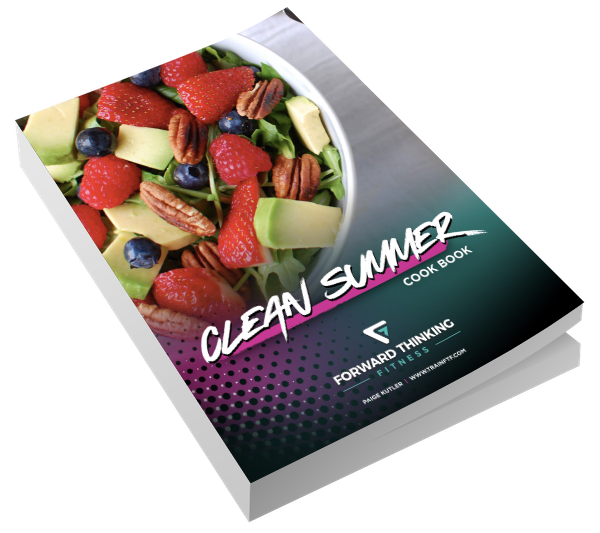Should you avoid buying these five things?
Food is a big part of our lives. In fact, when I educate my clients, I mention that they'll only train with us for 3-4 hours per week, with functional yoga 1-2 hours per week. So in total, we're looking at 2.5-3.5% of a client's entire week dedicated to sustainable movement.
Not only does this tiny percentage of time adjust one's perspective on how little effort is actually needed to see progress, but it also lays out the other 96.5-97.5% of a client's week dedicated to the following:
- Healthy food choices (high protein lifestyle with minimal processed foods)
- Ample sleep (8 to 10 hours per night)
- Active rest (20 minutes per day in a low-intensity movement, i.e. power walk)
- Sufficient hydration (90-110 oz. for most active females, 120-140 oz. for most active males)
- Positive mindset (Daily gratitude journaling, breathing exercises, optimistic perspective)
It's pretty clear that the larger part of the success pie is not, in fact, the working out component. That's why people who are going all-out in their bootcamp classes every day tend to stall in progress, because their only focus is burning calories and working up a sweat.
You're telling me 3% of your whole week is more important than the other 97% leftover? I was always terrible at math (you can ask my dad), but even I don't need a calculator to solve that problem!
If you're not reflecting on how you're feeling on a day to day basis, and not paying attention to more than just the exercise component, you're missing out on some great potential. I find that food is often the most overlooked of the above because of the convenience that surrounds us all.
And there's a very good reason you may feel like your mental health is suffering after ingesting certain items. If you struggle with anxiety or depression like I do, consider taking notes on things to avoid so things don't get worse ...
Sugar. America's favorite ingredient that increases depression symptoms. And I'm not talking about the sugar from fruit, either. Might as well keep dunking on General Mills and Kellogg's, because they know full well it's their addictive creations making people sick. So next time your coworkers bring donuts, cookies, and every other refined sugar product known to man into the office, do yourself a solid and say, No thanks, I enjoy better mental health.
Caffeine. America's favorite psychoactive stimulant is another one. Sorry, coffee lovers. 250 mg or more of caffeine per day has shown to boost anxiety levels. It's not surprising, as this drug increases the circulation of cortisol and adrenaline in the blood. I know the northeast hustle and bustle basically requires caffeine to survive, but if you're getting more than 2 cups of coffee in a day and you feel uneasy, it may be wise to scale back. Or you can give a better alternative like green tea packed with phytochemicals!
Diet soda. It's one of my vices after a long day at work. Recently I've scaled back to Zevia, which is a great alternative to Pepsi Co. (the guys that told you to buy their ultra-processed snacks to save money on real food) because it takes away the real culprit: aspartame. This neurotoxin increases the stress hormone, cortisol, through the bloodstream while messing up the body's proper production of serotonin and dopamine.
Junk food. Pretty much anything processed or ultra-processed (junk for short) comes in a box or a bag. The reason people feel bloated, have trouble concentrating, feel more aches and pains, and are generally less calm can be directly attributed to the gut inflammation caused by junk food. When you have unhealthy composition of gut bacteria, it can lead to more inflammation in the body. On your future grocery shopping trips, use this trick to keep the junk food out of the house: outside store edges good, inside store aisles bad.
Booze. I haven't written about this one for a while. Saved the biggest contributor to mental health disorders for last! Now, look ... we've all been taught from a very young age that alcohol is good for relieving life's stressors. This neurotoxin is up there with sugar as the most central part of our culture. From weddings to funerals, holidays to picnics, and festivals to pandemics ... booze will be there. So I get it, but it doesn't mean it's actually good for your mental health.
If you start taking notice of how you're feeling, you may find your problem is quite simple.
Not sure where to start? Grab a spiral notebook and write down what you eat, followed by how you're feeling. Keep noting changes in your mood, focus, inflammation, etc. and I'll bet you'll find the issue quicker than it takes me to write these blogs every Sunday.


